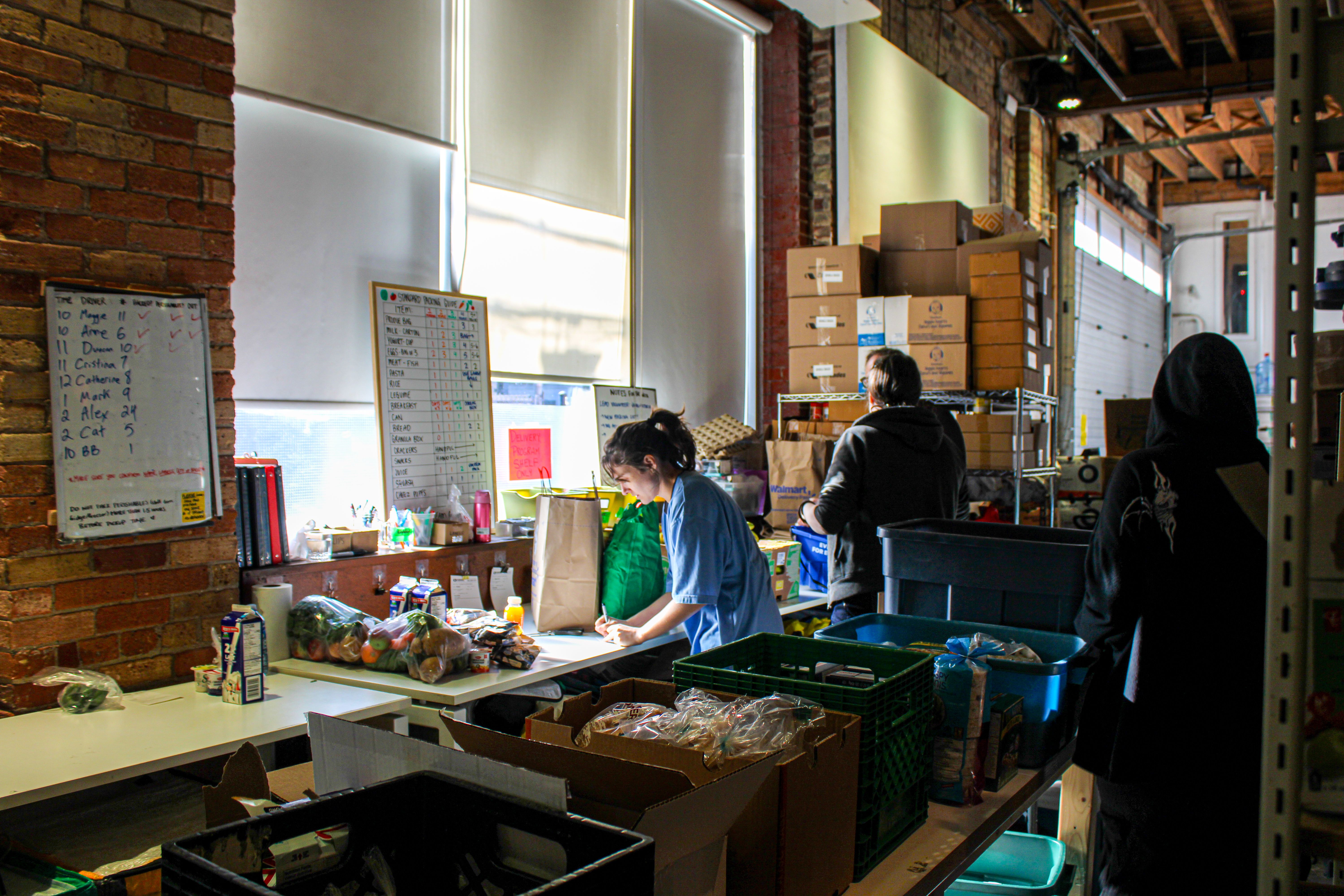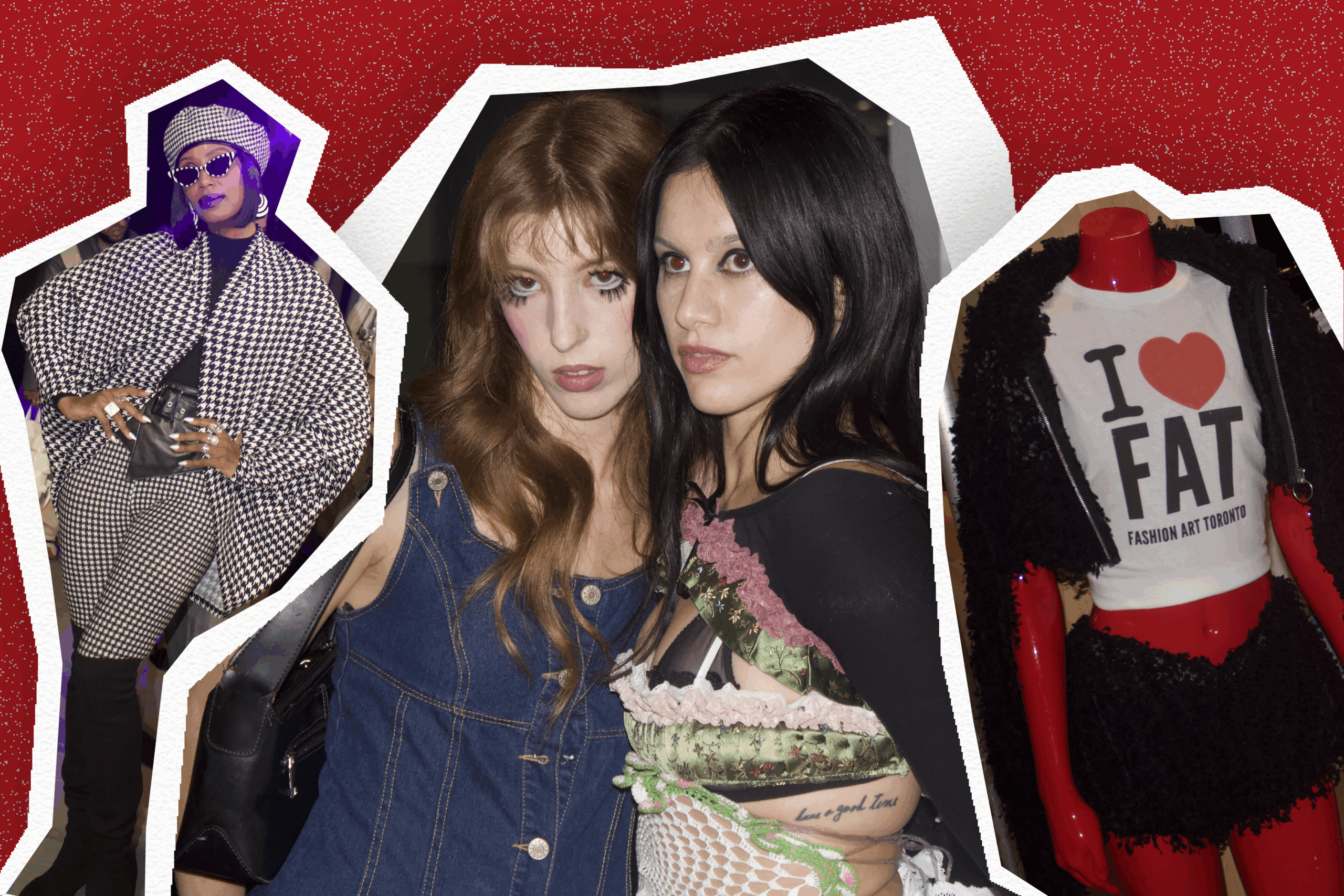Mustafa’s debut album is a vulnerable reflection on grief, hope and love

By Jillian Gonzales
Dunya, Toronto poet Mustafa’s debut album, unravels a medley of songs to listen to when looking for light. Dunya is a striking listening experience, with its sonic variety that takes listeners through a range of different genres like alternative indie, R&B and pop. Following its release on Sept. 27th via Arts and Crafts Production, Mustafa posted to his Instagram with a caption urging fans to “listen to it, I hope it makes you reconsider the dark. I tried my hand at beauty when it wasn’t in the cards.”
About Mustafa
Born Mustafa Ahmed, Mustafa was first known for his poetry from a young age. Most notably, he performed an original piece for his seventh grade class, which later went on to be recognized by Toronto’s Hot Docs Festival in 2009, Fader magazine reports. Later in 2016, Mustafa was associated with Canadian hip-hop group, Halal Gang and was appointed by Justin Trudeau to the Youth Advisory Council, due to his efforts as a community leader and activist. Since then Mustafa has gone on to share his words and lend his voice to millions as he began collaborating with big artists like The Weeknd, Camilla Cabello, the Jonas Brothers, Shawn Mendes and Justin Bieber.
Mustafa’s sister instilled a desire in him to speak about social justice from childhood, when he would accompany her to Toronto Metropolitan University’s campus, showing up for various movements and demonstrations. In an interview with The Line of Best Fit, Mustafa talks about his passion for activism, detailing his participation in protests for Palestinian liberation, inner-city violence and other social justice issues. These happenings led to his discovery of poetry as an artistic escape to explore his most pressing thoughts and their place within religion.
“I think doing poetry for all those years was the closest way for me to express myself without having to have the daunting discourse around music’s impermissibility in Islam,” Mustafa says in the interview.
Drake’s endorsement of Mustafa early in his career, as mentioned in The Line of Best Fit piece, allowed him to realize he could be something bigger — someone who could make a difference with his voice and words. In the same interview, Mustafa reflects on his connection with Halal Gang and how he felt a brotherhood with fellow members who he says looked out for one another.
He says, “I believe in gangs. I think we’ve vilified the structure of gang affiliation. The truth is, for a lot of people it kept them alive. I was a young and vulnerable person. I’m deeply grateful for Halal Gang and the members in it because we had each other.” As per the interview, Dunya is a reflection of the neighbourhoods he grew up in that suffer from the presence of gun violence. The death of his brother just one year ago in particular changed his perspective on loss and grief — themes that Mustafa continuously explores on Dunya.
About Dunya
In Arabic, the word ‘dunya’ is defined as “the world we live in now”, both physically and spiritually – a world filled with the “material and intangible desires people have in this life.” It can also be interpreted as synonyms for fate and destiny. When listening to Dunya, Mustafa’s soft voice echoes the urgency of the state of the world and asks for our patience for the light that will surely come.
In the interview with The Line of Best Fit, Mustafa says the album was completed before his brother’s death. After the loss of his brother to a daytime shooting in 2023, he feels as though the record was always meant to be written for him and the songs now feel like his biggest connection to his late brother.
Many artists expressed their support for Dunya in anticipation to its release. With artists like Dua Lipa, Daniel Caesar, Snoh Allegra, Omar Apollo and many more expressing their excitement over the album via Instagram and attending its listening parties, their support is evidence of its momentum, importance and sentimentality.
Upon its release, Yonge Dundas Square’s billboards were illuminated with promotion for Mustafa’s debut album.
Dunya: A reflection and review
Prior to the album’s release, Mustafa debuted its opening track, “Name of God,” followed by the release of singles: “Imaan,” “Gaza is Calling,” “SNL” and “Old Life,” over the span of the past year accumulating over six million streams on Spotify. This collection of songs laid the foundation for the album — an exploration into the internal turmoil we endure when juggling the obstacles of life and its accompanying feelings of hopelessness and misdirection.
“Imaan,” the second most streamed song on Dunya, speaks on its own by introducing bigger discussions of self-love in contrast with the obstacles that come with a relationship. Upon first listen, one might interpret it as a love song. However, it is about much more than romantic love – it’s about knowing what you want as an individual and understanding that alignment will not always come easily.
In the pre-chorus, Mustafa sings “I know that you can’t hold me / But just hold me, in some way.” These lyrics can be interpreted as describing both the physical and emotional bond shared between two people. In the second verse, he sings “You say praying isn’t easy / And all the ways you need me are from God / And all the ways you reach him are flawed.” Here he reflects on navigating the spiritual incompatibility that can arise in a relationship. This is a song about love — loving another person and loving yourself. And to do both, you must know who you are and what you want.
The seventh track of the album, “Beauty, end” is a song that leaves a mark. The acoustic strumming in its intro creates a sense of vulnerability, as if Mustafa was alone in a room and freely singing what came to his mind. The first verse touches on the feeling of wanting to disappear from the darkness that is clouding above. In the chorus: “And I only see beauty when it starts to end / I only see beauty when it starts to end,” Mustafa reflects on the moments of clarity when coming out of challenging experiences which overall furthered his wisdom and contributed to growth in newfound ways. The second verse touches on the violence he witnessed growing up and the impacts its left on him. In all, this song sheds light on the hopelessness we feel in our lives and how there are times where it becomes hard to see beauty in life.
Daniel Caesar is featured on track 10, “Leaving Toronto.” This is a song about resentment, feeling lost and disappointment in a place that is supposed to be home.In this soft and melodic track, Mustafa sings about the internal and external battles he goes through when it comes to his hometown. Born and raised in Toronto, he’s grown mixed emotions about the city and all the hardships it has brought him. Mustafa closes, slowly, with “I’m leaving Toronto / If it ever lets me go / And if they ever kill me / Make sure they bury me next to my brother,” reflecting on what makes a home — those who make us feel safe and fill a physical space with love and security.
Lyrically, sonically and musically, Dunya reminds us of the hope we sometimes forget and that we are not alone. Its soft instrumentals mimic the vulnerability and introspection we may engage in — those moments of doubt and uncertainty. The album mirrors the various tempos our life experiences embark on. Although in our most trying times, it can feel like an eternity of darkness, there are moments of light that are fast and beaming. This juxtaposition of speed and liveliness create an auditory metaphor, representing this everlasting journey that we call life.
If you have never heard Mustafa, listen to this album and take in its reminders of hope through hardship. Chances are, you’ll interpret it as a call to never give up.





